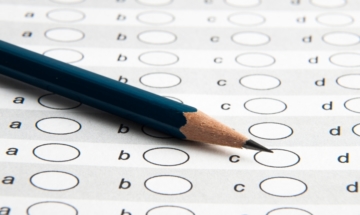Topic: Measuring Success

A Balanced Assessment System
Lack of statewide data—which are often used to evaluate changes in programs, policies, and practices at the school level—can be problematic, but school leaders can look at other evidence, including teacher feedback, to determine whether they should continue with these changes into the 2020–2021 school year. Schools that make regular... Read the full article >

Suggested Reading
1. The Role of School Librarians in OER Curation: A Framework to Guide Practice. This first-of-its-kind guide provides the missing roadmap to the Open Education Resources curation and implementation process, as well as resources to help librarians and other upgrade their skills as curators and as leaders of collaborative networks... Read the full article >

Testing AI: The Evolution of Educational Assessment
Development of even better technology-enhanced items—items that enable highlighting text as evidence to support an answer or graphing of mathematical functions—happens every year. Soon, science assessments will contain interactive, manipulable environments as well as the animated demonstrations of science phenomena like the effects of friction and starting heights on the... Read the full article >

So, Did They Learn Anything?
I have seen this myself over the course of the last three years, having observed nearly 200 classrooms and interviewed teachers across 10 different U.S. states, as well as in Mexico and Egypt. In that time, I have seen and discussed approximately 100 PBAs covering any number of topics. While... Read the full article >

Instructionally-Sensitive Assessments
James Popham (2007) identified a key premise in using test results to inform instructional practice. “The premise underlying the use of these accountability tests is that students’ test scores will indicate the quality of instruction those students have received.” However, in most cases, there is little evidence that test scores should... Read the full article >

Equity in Assessment: A Guide for Administrators
A brief history of equity in education Equity in educational opportunity has been a major focus of federal legislation and programs for over a half a century. It started with the passing of the Elementary and Secondary Education Act in 1965 and continued in all its subsequent reauthorizations, including No... Read the full article >

The Futures of Educational Testing
I’m talking about both state accountability testing and local testing—i.e., district, school, and classroom. The reason I’m addressing both is because I’ve seen the significant impact the former can have on the latter. In their own testing, local educators often mimic the kinds of tests that produce results for which... Read the full article >

Finding the Genius in Students with Significant Cognitive Disabilities
About Lake Hills School Lake Hills School is the Exceptional Student Education Center School for Lake County, Florida, which serves students with significant cognitive disabilities (SwSCD) ages 3–22. All of the classrooms at Lake Hills School are self-contained meaning the classes are multi-grade level and multi-ability level. For example, a... Read the full article >

Speaking a Common Language
Getting our Terms Straight One difficulty lies in the various terms educators, policy makers, and other leaders use when they discuss an assessment program or system. In our experience, we’ve learned that talking about different types of assessment can lead to a “Who’s on first?” circular conversation. After a few... Read the full article >

Early Childhood Assessment
In addition, early childhood assessment identifies the need for intervention or support services due to developmental delays or other risk factors influencing typical development. Finally, assessment supports programs in evaluating the effectiveness of learning environments, curriculum and instructional practices. A comprehensive assessment system within an early childhood program should include... Read the full article >